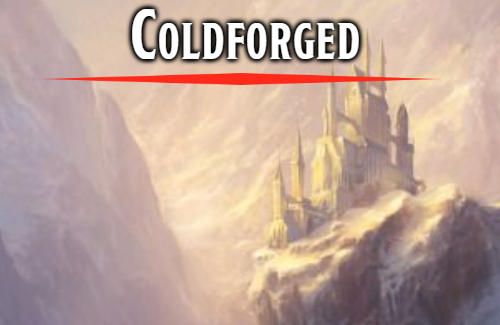From the Ground Up – Nations, States, Kingdoms

In direct contrast to last weeks focus, this week I want to talk a bit about the concept, formation, and anachronisms surrounding some of the nations in our RPG campaigns and other worlds. This is a fascinating topic because there is so much that is hard to understand from our point in time.
We live in an era where we feel that we have some, if even a little, say in many of the goings on of our communities and nations. Many of us elect our representatives, from local mayor to the chief executive of our country. We have a voice, however small it may seem to be. This specific capacity to influence is something that is hard shake when it comes to looking at the countries and nations of the time period that many RPGs and other fantasy genre are trying to imitate. While there is information aplenty on how the nations and countries… well, more on that in a bit – function, little of it is aimed directly at trying to create a more accurate fantastic political entity, because its often very dry and boring material.
But here, I’m not talking about palace intrigue or courtly endeavors, and I’m not even really talking about how knights and nobles interact. Here, I am going to focus on the peasants and the adventurers, and how they would view and interact with the world. There is also going to be a lot of overview of historical framing and how it sets the world up to be both accurate and unobtrusive.
The Polity
Lets start with nations. Well, really, its hard to start with nations, because that concept isn’t even a thing that really exists during the time period (1066-1350). Instead, Kingdoms were the way that most people interacted with their countrymen. Modern thinkers often have a hard time dividing themselves from their country, but often this was not the case in older times. Ethnicity was many times the central tenant of the kingdoms identity, with foreigners being forever marked and separated from the rest of society. People would always be who they were born to be as it was a static attribute, their destiny preordained.
Lets start at the top first, though it is often the portion of a government that most people can easily recognize. Kingdoms, very often, are ruled by Kings. In a particularly open society, it may be ruled by a queen as well. These Rulers hold reciprocal vows of loyalty and fealty with the nobles and lords below them, the caretakers of large swaths of land. Their vows promise protection and defense in a time of conflict, both from internal and external threats. Lords and ladies, as well, held vows with their subjects, the knights and minor nobility of the lands they control. Each of these individuals would control a town, a castle, or a tract of land within their lieges. There was never enough of them, and the land was always stretched thin with protection and defense. What little each could muster was often taken abroad on campaign against bandits or other kingdoms. This often left the interior ripe for abuse.
The lowest level, the commoner, is the vassal to the noble ruling over their local town or village. They have sworn to provide this lord of theirs with taxes, in cash or kind, in return for their promise of defense against invading armies and/or brigands. A knights retainers, soldiers, and men-at-arms would provide the defense, with the lord reaching upward when he realized that he could not protect himself.
the commoners, here, would not have referred to themselves as citizens, as many of us do today, and as the Romans and Greeks did. Citizens are free persons, often tied to cities, though this came later. Instead, they were subjects, a much more telling political entity. While the title of citizen implies action and involvement, the term subject implies passivity and oppression, and its not an incorrect distinction. Peasants, serfs, and subjects all suffered under the yoke of their government simply to survive.
What I really want to drive home here is that the kingdoms of our fantasy worlds don’t act, or even feel like our current world. We often institute town councils and other forms of local governance in to many of our realms, but that just isn’t an accurate representation. Town councils, and many self governing forms of communities, were often simply local courts. They didn’t have the authority to legislate. They couldn’t create taxes, spend money or perform any of the executive privileges. They were there to enforce and interpret the law, making sure that it was followed and punishments were meted out when necessary. They weren’t a ruling or governing body, and they were still subject to, within the law, full whim of their liege lord. It was not a great existence.
Adventurers
This is something that many people know already, though. Feudalism is understood at a pretty basic level by almost all gamers and writers. What stands out to me here as blindingly obvious is the lack of agency that any of the people in this system have. Kings are spent worrying on the bothersome trials of their vassals, while the Liege lords and knights spend their time in combat, being the law, or go to combat. Subjects, those least of all men, are tied to a lord who demands taxes, and therefore ties you closely to his lands. There is little room here for the rough and tumble, on their own adventurers of the types we commonly see.
That brings us to freedmen. These People, instead of being tied, through bondage to the land or a vow of fealty, to a specific place, were able to simply take up and leave. When they settled down in a rural place, they would pay rent in either cash or kind, and would be the beneficiaries of any extra that they brought in. They could become land owners and even quite wealthy. If they lived in an urban center, they would often work for wages and provide skilled labor.
This means, at least from my view, that many of the adventurers would have to be this class of people. The class in the current society, tied down to nothing and beholden to no one. Its an interesting situation to look at, as they could become craftsmen, soldiers, mercenaries or more. They are the only people in the state that have the freedom to be able to.
Political Disunity
While players may be freedmen of a given country, they will often be interacting with the subjects of different countries, often in the form of conflict. However, don’t discount the intra-kingdom fighting that went on fairly often. While today’s countries and nations have generally peaceful interiors, that was not always the case. There are many instances where jealous nobles, aggrieved knights and other problems spilled over into violence and death. This was not restricted, as I mentioned above, to different states and political entities, but was often carried on between the members of a single Kingdom. If a pair of Earls disagreed with each other, and found no recourse through their king, war was often seen to be the only solution.
This may seen strange to us, but war was not, in that time, considered a thing to shy away from. It was a tool to be used as was seen fit, even – and sometimes specifically for, political ends. the stigma we have in the modern time about using violence to achieve ones ends was simply not something that existed in the past. This can be incredibly hard to grasp when so much of the world around is is playing the opposite tune, and has been for so many years.
I challenge you to look up and delve deeply into the world of the 10th through the 14th century, specifically its political and military interactions and how they are interwoven. Adventurers in fantasy worlds play a very important part here. They are the unaligned and free agents that can, and often should, be used without an attachment to a specific lord, knight, or land. They are special forces of the times, that can easily have their existance denied and their actions disavowed. Its an angle I have always found exciting.
Till next time,

